Putin warns of 'global catastrophe' over NKorea impasse
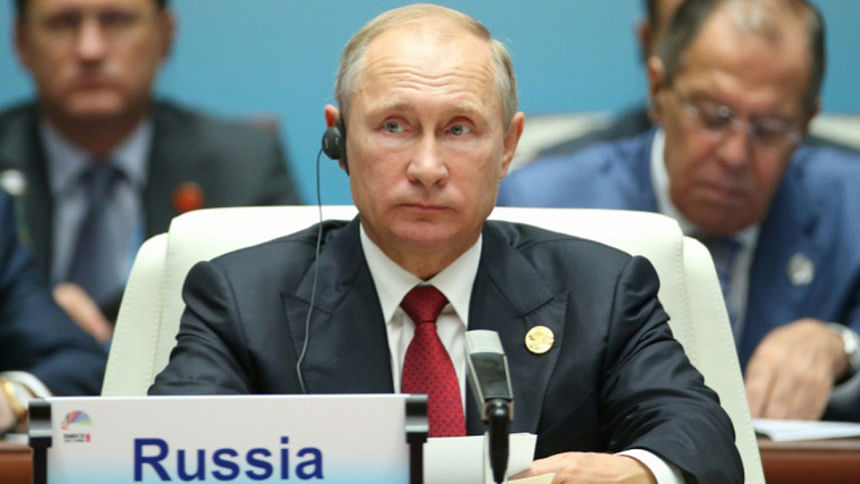
Russian President Vladimir Putin warned Tuesday of a global catastrophe unless a diplomatic solution is reached over North Korea, but rejected US calls for more sanctions as "useless", widening a split among major powers over how to rein in Pyongyang.
Putin's comments appeared to draw the lines for a clash at the United Nations pitting Moscow and Beijing against Washington and its allies.
The US on Monday demanded the "strongest possible measures" against North Korea for detonating what Pyongyang said was a hydrogen bomb that could be mounted on a missile.
The announcement dramatically upped the stakes in its standoff with the international community over its banned weapons programmes, which have seen it subjected to seven sets of UN Security Council sanctions so far.
As well as the US, South Korea and Japan, plus permanent Security Council members France and Britain, have called for stronger measures against it, with several arguing for a potentially crippling oil embargo.
But Putin made clear that Russia was opposed to further interdictions, and while China -- North Korea's patron and closest political and economic partner -- has yet to be drawn on the issue, it tends to resist placing pressure on Pyongyang.
'Planetary catastrophe'
Putin, speaking after an international gathering in China, said Russia condemned North Korea's "provocative" actions.
But he called for dialogue and warned against other actions that could escalate the crisis.
"Resorting to just any sanctions in this situation is useless and inefficient," he told reporters in the Chinese city of Xiamen following a summit of the five-nation BRICS club of emerging economies.
"All of this can lead to a global planetary catastrophe and a great number of victims."
World powers are scrambling to react to the latest ominous advance in the North's rogue weapons programme, which has sent global tensions soaring.
US President Donald Trump has approved in principle the sale of "many billions of dollars' worth of military weapons and equipment" for South Korea, the White House said Monday.
South Korea said it fired a volley of ballistic missiles on Monday to simulate an attack on the North's nuclear test site, followed Tuesday by major live-fire drills at sea.
At an emergency meeting of the UN Security Council, US Ambassador Nikki Haley said Washington would present a new sanctions resolution for debate in the coming days.
Declaring that "enough is enough," Haley said existing measures not worked and accused North Korean leader Kim Jong-Un of "begging for war" with the country's sixth and most powerful nuclear test.
Seoul estimated the blast's yield at 50 kilotons, more than three times the size of the bomb detonated over Hiroshima in 1945.
Haley did not spell out what measures Washington was seeking, but diplomats said it could target oil supplies to North Korea -- potentially dealing a major blow to its economy.
In a phone call with Putin on Monday, South Korean president Moon Jae-In -- who travels to Russia Wednesday -- told him it was time for the Security Council to "seriously review" the suspension of crude oil supplies to the North, and the export of its workers, many of whom are sent to Russia to earn funds for Pyongyang.
New sanctions could also seek to curb tourism to the country.
The most recent measures, imposed last month following Pyongyang's July firing of two intercontinental ballistic missiles (ICBMs) that apparently brought much of the US mainland into range, zeroed in on the economy.
They targeted key exports such as coal that are a source of foreign currency for the regime.
Seoul has said the North could be planning another missile test.
At the Security Council meeting, China's ambassador Liu Jieyi warned that the crisis was worsening and emphasised the need for dialogue and a diplomatic solution.
"China will never allow chaos and war on the (Korean) peninsula," he asserted.
Chinese-Russian plan
Liu urged the parties to agree to a Chinese-Russian plan calling for the North to freeze its missile and nuclear tests and the United States and South Korea to suspend joint military exercises.
Haley rejected the proposal as "insulting."
"When a rogue regime has a nuclear weapon and an ICBM pointed at you, you do not take steps to lower your guard. No one would do that. We certainly won't," she declared.
Haley reiterated US threats to impose sanctions on countries that trade with North Korea.
That could have major reverberations: China is the largest trading partner of both the North and the United States.
South Korea's defence ministry said it was already strengthening its defences, in part by deploying more US-made Terminal High-Altitude Area Defence (THAAD) missile launchers.
The North says it needs nuclear weapons to defend itself, and analysts say it is seeking to strengthen its hand for any future negotiations with Washington.

 For all latest news, follow The Daily Star's Google News channel.
For all latest news, follow The Daily Star's Google News channel. 

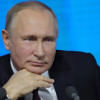

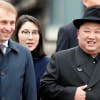
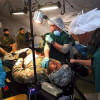
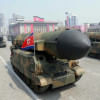


Comments